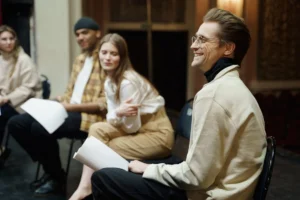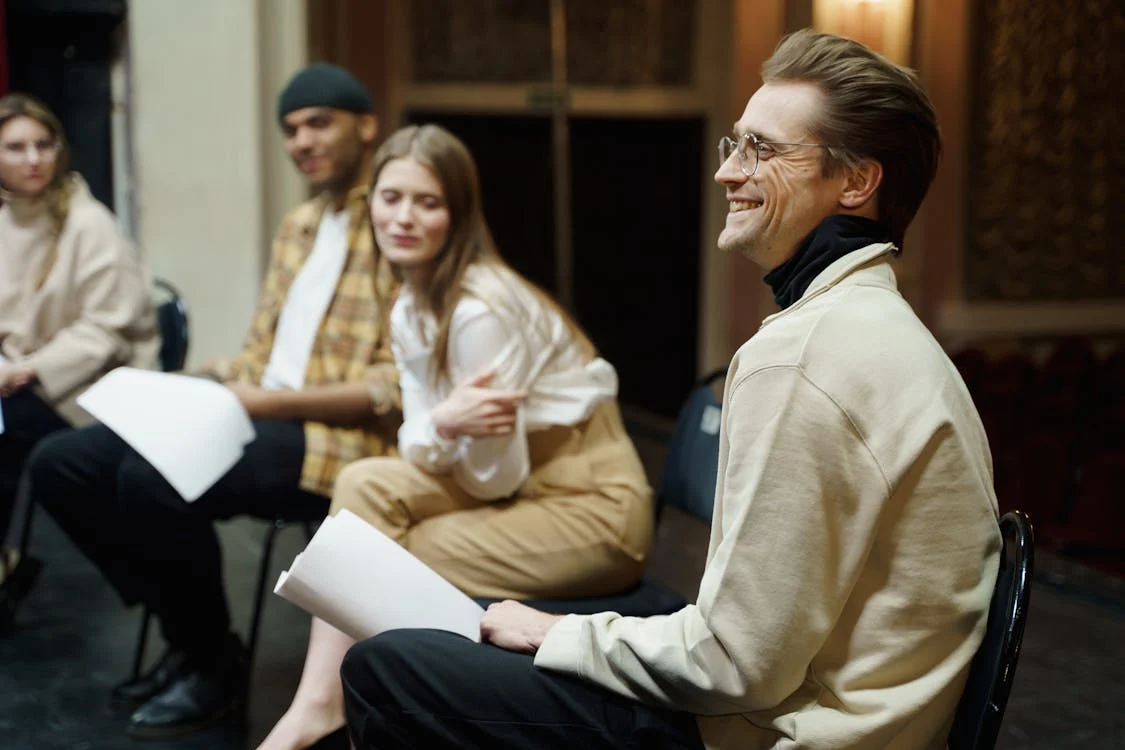Do Actors Say Exactly What’s on the Script?

(Photo: Cottonbro Studio | Pexels)
When watching a movie or TV show, we marvel at the dialogue that seems to flow naturally from the characters. But how much of that dialogue is exactly what the scriptwriters envisioned? Do actors always stick to the script, or do they have room for improvisation? The answer is both fascinating and complex.
The Script as the Blueprint
The script is the backbone of any production. It provides the story, character motivations, and dialogue crafted by the screenwriter. In most cases, actors are expected to deliver their lines as written. This is especially true in productions where the dialogue is carefully calibrated, such as in legal dramas, period pieces, or works by playwrights like Aaron Sorkin or Shakespeare. Every word matters in these cases, and deviations could alter the intended meaning or rhythm.
In such productions, actors are often required to memorize their lines verbatim. Directors and writers might even be present during filming to ensure fidelity to the script.
The Role of Improvisation
Despite the importance of sticking to the script, improvisation is a tool often used by actors to breathe life into their performances. Improvisation allows actors to add spontaneity, which can make scenes feel more authentic or emotional.
Some directors actively encourage improvisation. For example, Judd Apatow’s comedies, like Knocked Up or The 40-Year-Old Virgin, are known for their ad-libbed lines. Robin Williams, an iconic master of improvisation, famously created many of his memorable moments by deviating from the script, including his hilarious and heartwarming performance in Aladdin.
When Deviations Are Allowed
The extent to which actors can improvise often depends on the director and the production style. Directors like Quentin Tarantino or the Coen Brothers are known for writing meticulously crafted dialogue and generally expect actors to adhere to their scripts. Conversely, filmmakers like Christopher Guest and Taika Waititi are more open to unscripted moments.
Actors also sometimes tweak lines to make them feel more natural or reflective of their characters. A famous example is in Jaws when Roy Scheider’s character improvised the line, “You’re gonna need a bigger boat.” This iconic moment was not in the original script but became one of the most memorable quotes in film history.
Collaboration Between Actors and Writers
Sometimes, deviations from the script arise from collaboration. During rehearsals, actors might suggest changes based on their interpretation of the character. Writers and directors often welcome these suggestions as they can lead to a richer performance. This process is especially common in theater and independent films, where collaboration is integral to the creative process.
For example, in Good Will Hunting, Matt Damon and Ben Affleck worked closely with director Gus Van Sant and Robin Williams to refine dialogue, resulting in moments that felt both personal and authentic.
Conclusion
While the script is the foundation of any performance, what we see on screen is often a mix of carefully written dialogue and creative improvisation. Actors generally aim to honor the script but also bring their unique interpretations and instincts to the table. The result is a blend of artistry that makes each performance unique, even when the same script is performed by different casts.
So, do actors say exactly what’s on the script? Often, yes—but the magic of filmmaking allows for those spontaneous moments that elevate a story from good to unforgettable.




